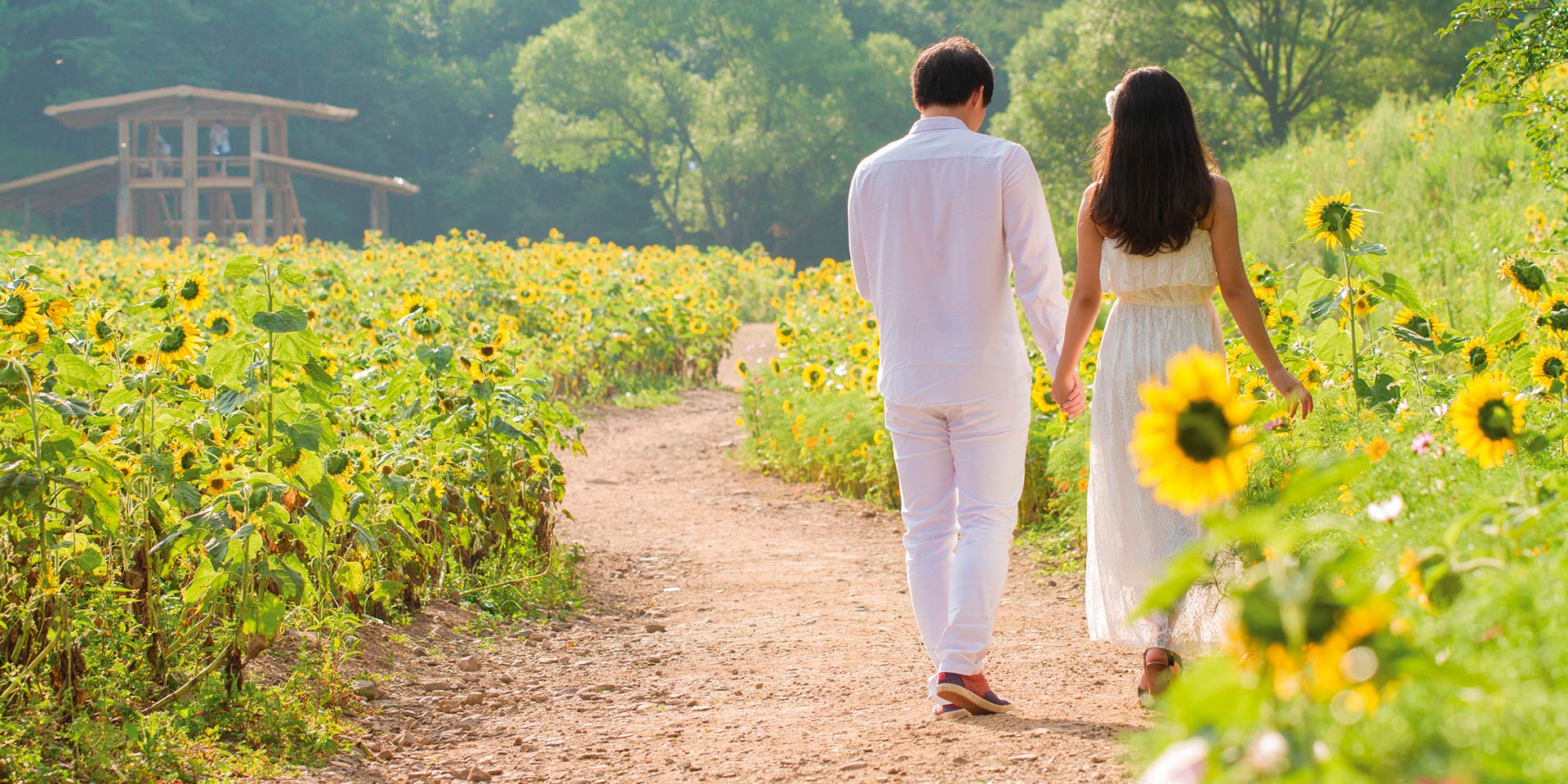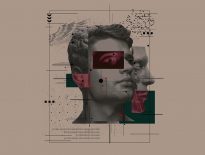Social upheaval, an identity crisis, the sexual revolution, experimentation with drugs, and Eastern philosophies distanced entire generations in Western Europe from conservative values and faith. However, in the same 1960s and 1970s environment, Marijke and Bernard Beranger found something better and more lasting.
Rather than wasting their lives on experimentation and suffering irreparable losses, they discovered the joy of integration with nature, as well as the wisdom and transformative power of the Bible, in the secluded atmosphere of a farm. The restaurants they opened, called Country Life—one in Paris and one in Marseille—became small sanctuaries, cherished and visited by generations of seekers.
A.B.: What memories do you have of your first visit to Romania in 1992?
B.B.: It was right after the Revolution. It was an adventurous and very interesting experience. I fell in love with the Romanian people.
A.B.: I would like to ask you a few questions about where you started out in life. Shall we begin with you, Ms Marijke?
M.B.: My father is Indonesian and my mother is Dutch. We lived in the Netherlands for years. I studied art therapy and worked in a psychiatric clinic. Then, wanting a different experience, I went to a farm in the south of France that belonged to a family of doctors. They asked me to help out because they wanted to support young people with drug addictions. I ended up staying there for three years. My parents were desperate, but I really liked it.
A.B.: What religion was your family? Was your father a Christian?
M.B.: Yes, both my parents were Christian. I wouldn’t say religion was that important in our family though. When I was 16 or 17, I practised Eastern meditation and yoga. I didn’t enjoy it, so I left for France. Initially, I helped people with drug addiction or depression.
Then I noticed that the people working on the farm talked about a Creator. We produced all our own food on the farm. Gradually, I began to understand what it meant to depend on the Creator. Those who worked in the garden and took care of the farm horses had a different outlook on life to city dwellers, who lived in an artificial environment. I had the impression that these people had something that I couldn’t find. When I asked them what it was, they told me it had to do with the Bible. I replied, “I would like to study with you. Is that possible?” As I grew up, I gradually began to understand. This family was Christian. I was interested in Indian philosophy and thought that believing in Jesus was old-fashioned. However, I discovered that the opposite was true.
A.B.: What was the next step in your religious journey?
M.B.: The owners of the farm were a family of Adventist doctors. They were very discreet and did not talk ostentatiously about their religion. People in France are very reserved, and the Adventist Church is not widely known. I think I would have been scared if they had [been more overt]. They told me, “We’re going to study the Bible. We’re going to discover the person behind this book: Jesus. If you want to get to know Him, you’ll have to study and you’ll get to know Him little by little.”
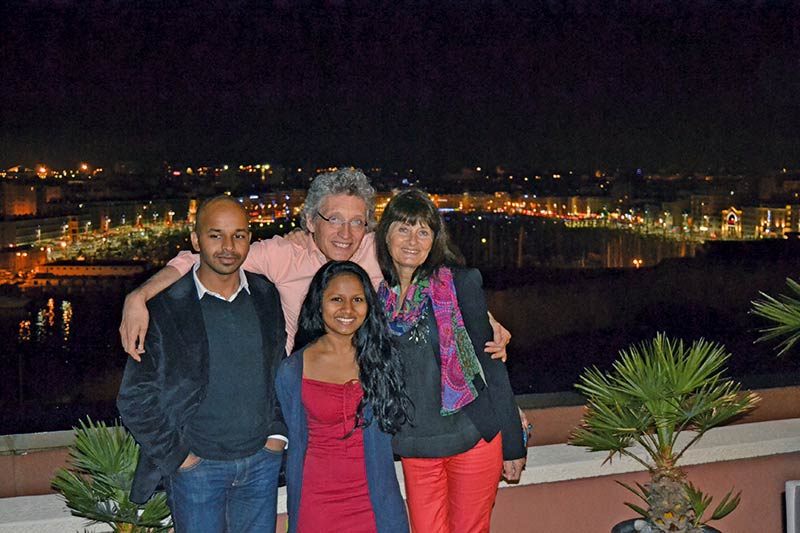
A.B.: What was it like for you, Mr Bernard?
B.B.: I had a similar experience. I grew up on the French Riviera, near Nice, on the other side of Europe. My family’s religion was money—a very famous god in France.
A.B.: Not just in France. All over the world.
B.B.: My father was in business. He expected me to help him later on. He had a successful company. He lived on the French Riviera and was rich, but people like that are often unsure about life’s meaning. Many people think that if they had money, they would be happy. I experienced this first-hand and realised that there was a void in their lives. I didn’t want to be like them. I think I was around 16 when I said, “I’m not going to live for that.”
A.B.: You were quite young when you realised this.
B.B.: As you know, France is famous for its philosophers and writers. I read a lot of books and searched for many things. It didn’t take me long to realise that life was not what I had been led to believe. I remember a question my father often asked me: “What are you going to do with your life?”
A.B.: It was a practical question, not a philosophical one.
B.B.: Yes, it was very practical and related to how I would support myself. I knew what I didn’t want to do. But I didn’t know what I wanted to do. That was the beginning of a search that took me to Africa and made me travel through the Sahara in search of a better life. I returned from Africa convinced that I had to embark on a spiritual journey.
A.B.: What happened in Africa?
B.B.: I was in a remote part of the Sahara, in an oasis in southern Algeria near the border with Niger. I was standing alone, looking out over the desert, when I was struck by a powerful impression: “You want to change the world, but first you must change yourself.” It was like a bolt of lightning. I returned home and asked myself, “How can I change?” I started going to see Catholic priests. I had long hair. I talked to Protestant pastors. But I couldn’t find an answer to my question.
A.B.: You searched, and, as I understand it, you were disappointed.
B.B.: I wasn’t surprised that Christianity didn’t have the answer. I was sure of that. I started reading books about Gandhi. I didn’t want to have a spiritual experience just for myself. I believed that something had to change in the world around me. Gandhi was the perfect example of someone who had a profound spiritual experience yet remained practical, realistic, and active. He became one of my mentors. I read all his books. I also visited people in France who revere Gandhi.
A.B.: I think that was the trend at the time.
B.B.: Everyone was looking for something better. In the 1960s and 1970s, people were attracted to Eastern philosophies. They were disappointed and hoped that something else would fill the void inside them. It’s no wonder they were disappointed when they saw what the world was like. Looking at all this, we think, “If this is the result of Christianity, then give me something else.”
I was reading philosophy. I practised yoga and started asking myself serious questions. I didn’t feel good. I wanted to know more about Christianity. I ended up at the same farm where Marijke was staying. I could see that the people there had an authentic experience. They weren’t trying to convert me, but they said, “Here is the book. Read it and you will understand.”
I was very interested in studying and learning more about Christianity.
A.B.: Before that, you asked priests and pastors for help, but you didn’t read the Bible yourself. This time, however, you read it on your own.
B.B.: That’s what changed everything. When I first met this family, they didn’t talk to me. Instead, they asked, “Wouldn’t you like to read?” I wasn’t dealing with human ideology, but with what I later accepted as the Word of God. That’s what changed everything.
A.B.: How long did it take you to find solid ground and discover the answer to your initial question, “How can I change?”
B.B.: From the moment I discovered the Bible, it took me two days to understand its message. Then it took me two years to delve deeper into it. My friends there told me, “Take it easy.” I was already a vegetarian.
A.B.: For health reasons?
B.B.: No, for philosophical reasons, so as not to contribute to suffering. I had given up drinking and smoking, and I treated my body as a temple of God.
A.B.: You were like a saint compared to the other young French people at that time. Those were turbulent years when people were indulging in many excesses, yet you were a vegetarian who didn’t drink or smoke!
B.B.: I was an atypical Frenchman.
A.B.: Is that where you met?
M.B.: Yes. That’s where we met. We didn’t start a relationship right away though. We were busy. I was so busy studying the Bible that I said I needed a few years. Eventually, though, I realised that we were meant to be together and live our lives together.
A.B.: Did you spend a long time there?
B.B.: We accepted this family’s invitation to stay with them and help out with the farm, which was quite well known. They had lots of visitors and needed assistance. We stayed and worked there for eight years. They provided me with training. I learned my first trade as a farmer and horse breeder. As my wife said, I was very happy to see many lives change because people spent time in nature and got to know the God of nature. I had a wonderful time studying alongside young people from all over the world.
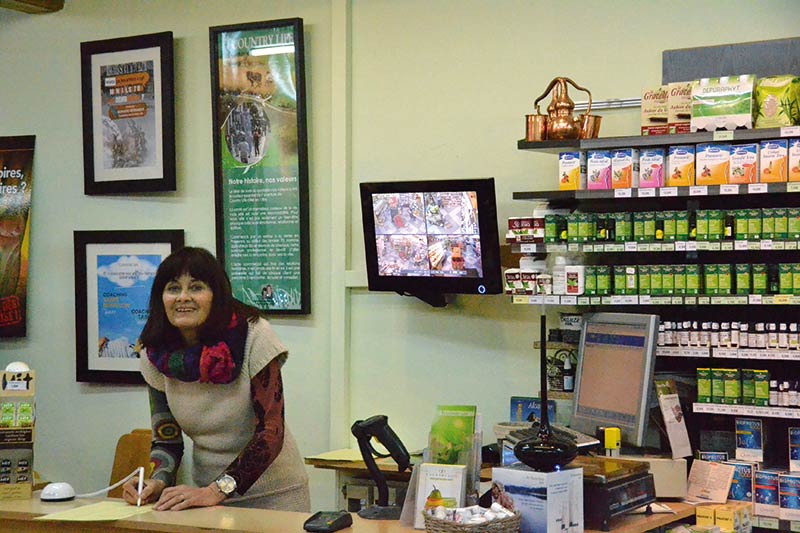
A.B.: What was it like for you, having discovered the Bible recently and then immediately starting to help others?
M.B.: We weren’t trying to convince anyone. I learned how to respect people and their different ways of thinking because that’s how it was done with me. We had a specific time for studying. We usually started after breakfast and spent an hour studying. We prayed before opening the Bible and then let the book speak to us. When people read one verse and then another, they realised that this book was different. They got to know Jesus, and that changed everything. It was an extraordinary experience for us, as around two thousand people came to the farm every year.
B.B.: Not everyone wanted to study the Bible, but many did. We were there and saw how these people opened up and discovered Christ. France is an atheist country, but we became friends like never before.
A.B.: How did your families react to this big change?
M.B.: My family was very sceptical at first because they wanted me to be a psychologist in Amsterdam, not on a farm with drug addicts. But when they saw how happy I was, they said, “Time will tell if your strange ideas will last.” Now, after 40 years, I am just as convinced. I ask myself more and more questions now, especially about raising children, because Amsterdam is very liberal. Children drink and smoke, so my sister and brother tell me, “You raised your children differently. Help us! Tell us how to do it.”
A.B.: What can you tell us about your family?
B.B.: When you embark on a journey like this, I think it’s important to understand that each day will reveal whether it’s genuine or fake. If you change your character for the better—if you have love, compassion, and acceptance in your heart; if you don’t judge people; if you are friendly and open—all of this will determine certain reactions from others.
Love begets love. Our family was a testament to that. We were close to them, even closer than before. What else could they say? What can you say when someone’s life has changed for the better?
A.B.: You stayed there for almost ten years. What happened after that?
B.B.: We travelled to many places and met friends from America who were doing something similar to what we were doing. I remember visiting a project in New York. After living on a farm in the countryside, we found ourselves in Manhattan, just one block away from Wall Street. We went to the opening of the Country Life restaurant, which was a vegetarian restaurant with a health food store. I said to my wife, “It’s strange working in the city, commuting every day and sitting in traffic jams. It’s crazy. I’ll never do that.”
In life, you should never say “never.” Guess what happened? We were impressed by the dedication of those people. We returned home to France. We researched, thought, and prayed. As the days passed, we became increasingly convinced that France needed something like this too.
Long story short, we left that beautiful valley in Provence, with its scent of lavender and thyme, behind us to go to Paris, with its smells of cars and traffic congestion. We opened a restaurant there. We served 400 people every day and met all kinds of people.
A.B.: Was there interest in vegetarian, organic food? Pretty small at first, right?
M.B.: On the first day, we served around 70–85 people. The next day, 200. So we had to keep up. The shop was almost entirely organic and the restaurant was about 70 per cent organic. It was fascinating to meet all those people in the centre of Paris.
A.B.: What kind of people came to eat a vegetarian lunch?
B.B.: At that time, vegetarianism was very popular in Paris. We had customers who worked in fashion, as well as intellectuals, politicians, and actors. Lots of people.
A.B.: I think the location of the restaurant had a lot to do with it.
B.B.: The location was very good. We were on a street corner near Opera Square. People who worked nearby came to us. When you talk about ecology and organic gardening, it’s worth noting that these are very popular now. Who cared about them 20 years ago? We were pioneers in this area. We were surprised at how quickly and positively we were received. We were very successful. We made many friends. We ran cooking classes, health seminars, anti-stress seminars, and weight loss seminars, as well as occasionally organising Bible-related events, because we wanted to share our beliefs. We wanted to share not just religious beliefs, but also the idea that the world would be a different place if people had higher values.
We helped those who were interested in spiritual values in this sense. As we were in Paris, you can imagine that we couldn’t promote religion. The French are very reluctant. It’s a very personal matter, so you have to build trust before you can talk about it. That’s what we did.
As the project developed, I soon felt that we needed more people. You can’t just hire anyone for this work. You need people who are convinced and share the same vision. So I decided to start an educational programme. I started one because I was living on a farm near Paris. People came from all over Europe to understand what we were doing and to receive training. We opened a “Country Life” centre in Marseille because the mayor’s wife there used to visit us regularly. The centres operated simultaneously for nine years, then we had to close the Paris restaurant and continue with the Marseille one.
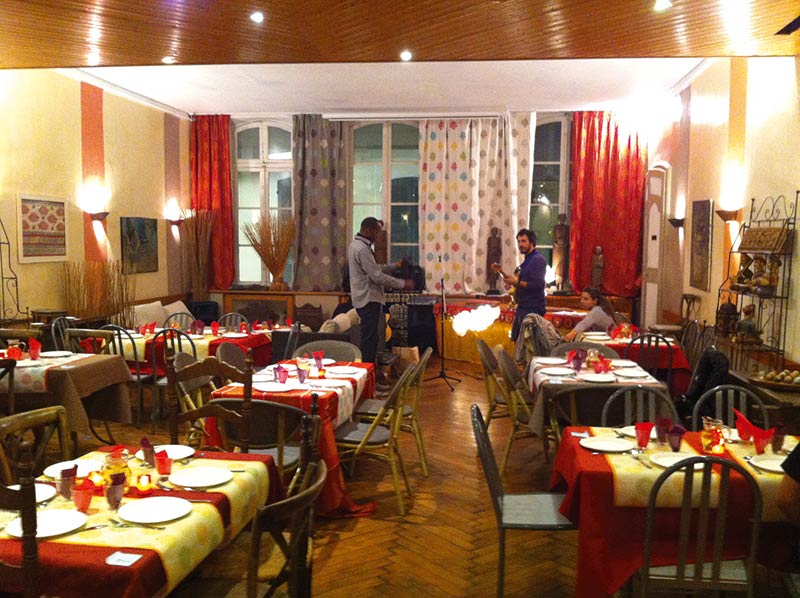
A.B.: What is the most important lesson you learned from this highly successful and beautiful experience?
M.B.: It is vitally important to meet people where they are, in the midst of their problems, and try to offer them light. We must surrender ourselves. It’s not about personal gain, but about giving to others. We have to learn this.
A.B.: Thank you for sharing your life story with us. I wish you success with your project, which welcomes all those searching for what you have searched for yourself.












